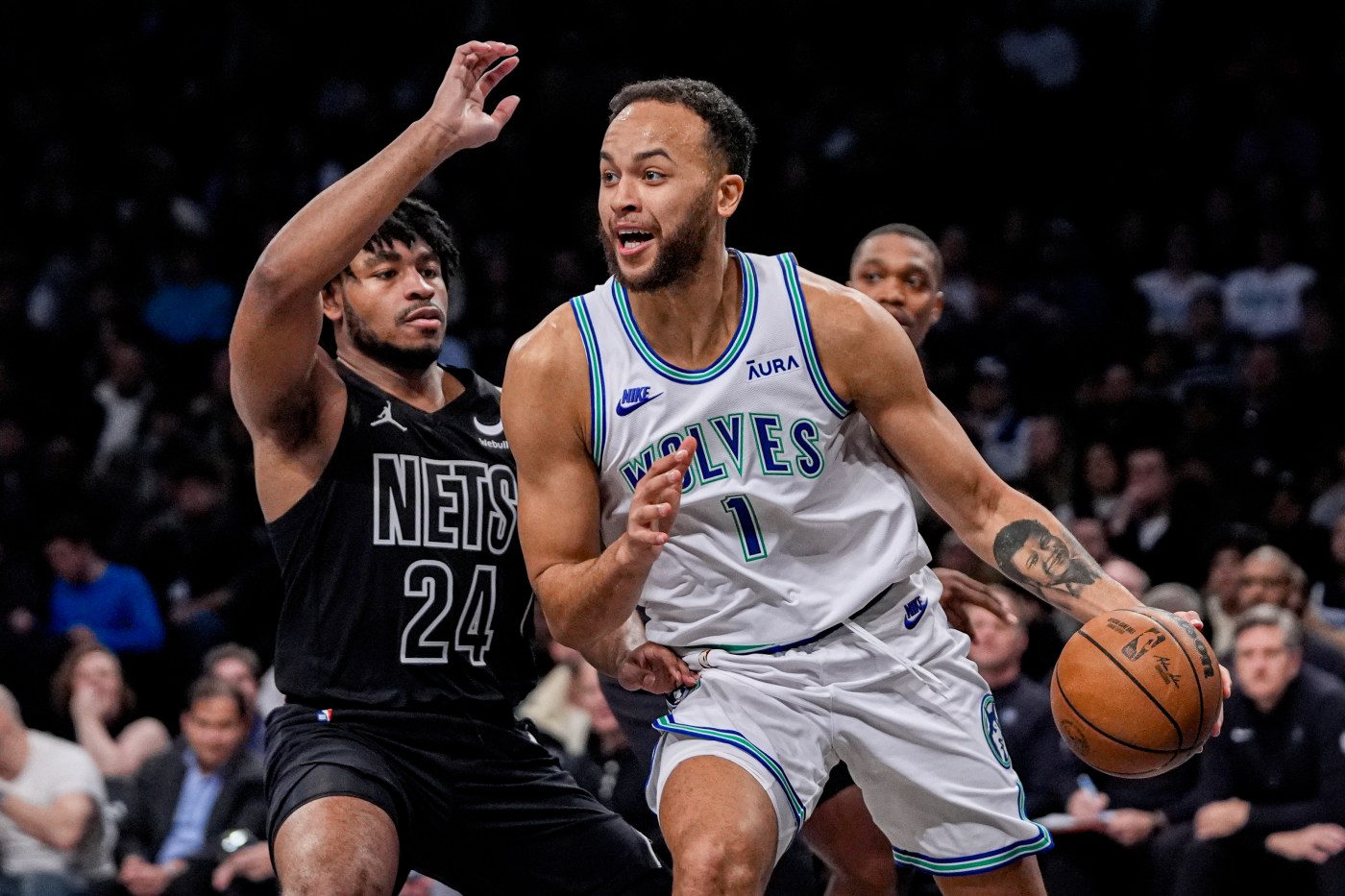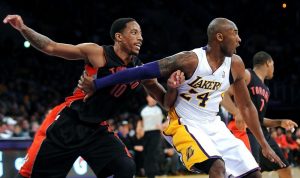
Timberwolves’ clutch-time offense has to improve if they want to do anything this season
The Timberwolves convincingly outplayed the Nets for most of Wednesday’s game in Brooklyn. Yet there the Nets’ Mikal Bridges was, with a chance to tie the score at the free-throw line with 2.6 seconds to play.
He didn’t convert, and the Timberwolves escaped with a 96-94 victory. But Minnesota never should have been in such a position.
Those are the pickles you create for yourself when you can’t close games with any type of efficiency. The Timberwolves had more turnovers (eight) than made shots (six) in the fourth quarter, continuing a month-long string of poor play when it matters most.
“This is our fourth quarters of late. We just turn it over at a high volume. Eight turnovers in the fourth quarter, and they came in pretty typical ways,” Timberwolves coach Chris Finch told reporters. “And then you put some iffy shot selection on top of it, that’s why things are snowballing against us.”
Wolves center Rudy Gobert told reporters Minnesota reverted back to “old demons” at the end of the contest. “Isolation, bad shots, turnovers.”
It’s Minnesota’s late-game M.O., and a 180 from the way the Wolves closed games at the season’s outset.
Through Christmas, Minnesota had played 10 games featuring clutch time – defined as the final five minutes of overtime or regulation when the margin is within five points. The Wolves were 9-1 in such contests. They were outscoring opponents by 24.6 points per 100 possessions of clutch time – the third-best mark in the NBA. They touted the League’s third-best clutch time offense.
Everything, it seemed, was in order.
And everything has fallen off the earth since then.
Over the last month, Minnesota is 28th in clutch time net rating, getting outscored by 37.6 points per 100 clutch time possessions. The Wolves’ clutch time offense in that span is second worst in the NBA – the Wolves are averaging just 0.86 points per possession with the game on the line. They are 4-5 in clutch-time games since the holidays – a significant fall from grace.
For the season, Minnesota is being out-scored by 4.9 points per 100 possessions during clutch time.
“We’ve got to fix that, or we won’t be able to take the next step as a team,” Finch said.
The latter sounds dramatic, but it’s factual. Teams that can’t close games don’t win championships.
Over the past 10 years, no team with a negative clutch-time net rating during the regular season has won an NBA championship. Only two such teams have reached the NBA Finals in that time. Just 18 percent of conference finalists in the past 10 years have had a negative clutch-time net rating.
It has to get better.
“That’s been kind of our Achilles heel lately. Can we take care of the ball? Can we get a shot up?” Timberwolves guard Mike Conley said to reporters. “We have to find ways to stay in our actions, stay moving our bodies, keep pace in our offense and not rely on iso, hero ball style of play. It funnels us into turnovers.”
One solution is likely to get the ball back into the hands of Conley, their veteran point guard. Before Christmas, Conley had a usage of close to 14 percent during clutch time. He was 5 for 10 shooting from the field in the closing minutes, with eight assists and zero turnovers.
Since Christmas, that clutch-time usage has dipped to eight percent. He’s taken just four shots, and while he still has zero turnovers, he also has just one assist.
He simply hasn’t been involved when the game is being decided.
In that same stretch, Anthony Edwards, who displayed awful decision-making down the stretch in the game in Brooklyn, is 4 for 15 shooting from the field in clutch time. Karl-Anthony Towns is also 4 for 15. Those two are the primary drivers for isolation basketball that can often lead to Minnesota’s demise.
Perhaps a heavier Conley influence would generate better opportunities and improve everyone’s looks — and, thus, field goal percentages — late in games.
That has to happen. Or, as Finch suggested himself, this team won’t be able to achieve anything of consequence later in the season. That’s been shown in recent Wolves’ history. They did drop three games in the first-round series against Memphis in 2022 in which they led by double digits in the fourth quarter.
In the lone game they won in last year’s playoffs — Game 4 against Denver — Minnesota had to pull it out in overtime after leading by 12 points with fewer than three minutes to play in regulation.
If you can’t finish off a game, you probably cannot finish off a season.
Related Articles
Timberwolves survive late-game struggles to edge Brooklyn
Timberwolves again uninspiring but this time victorious in win over the hapless Wizards
Jace Frederick: Mike Conley is the antidote for Timberwolves’ immaturity
Timberwolves suffer embarrassing home loss to Charlotte on night when Karl-Anthony Towns scores 62
Timberwolves announce new premium club space


